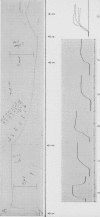Abstract
1. A new instrument, the integrating thermopile, is described for measuring the total quantity of heat produced during muscular contraction.
2. This instrument has been used to investigate the relation between change of enthalpy (- (heat produced + work produced)) and break-down of phosphorylcreatine (ΔPC) in iodoacetate-poisoned frog sartorii at 0° C. In a variety of different types of contraction—series of isometric twitches, isometric tetani, contractions with positive and with negative work—the relation between enthalpy change and ΔPC was always the same, and corresponded to an in vivo molar enthalpy change (ΔH) of -11·0 ± 0·23 (S.E.; n = 52) kcal/mole.
3. This value of ΔH is used to estimate the in vivo ΔH for ATP splitting and also the number of rephosphorylations to be expected per hexose unit oxidized by normal unpoisoned muscle.
Full text
PDF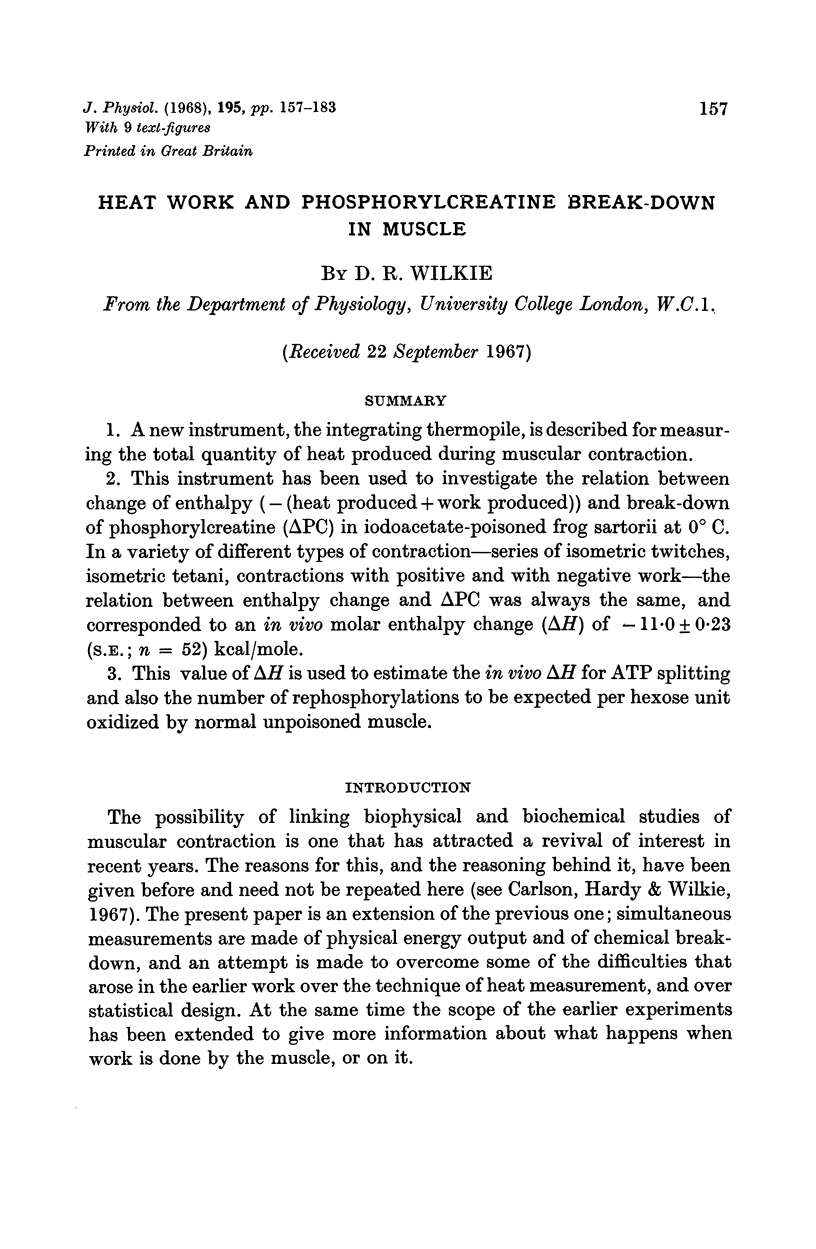
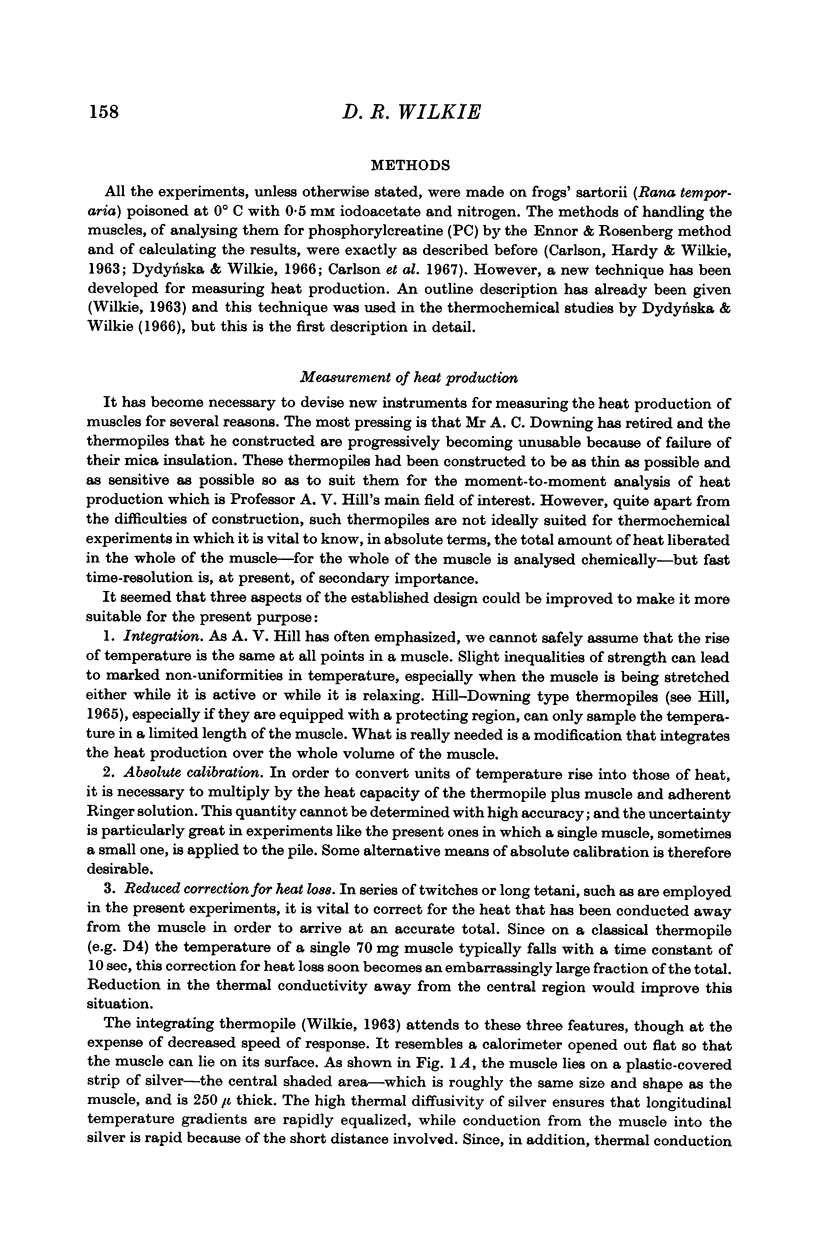
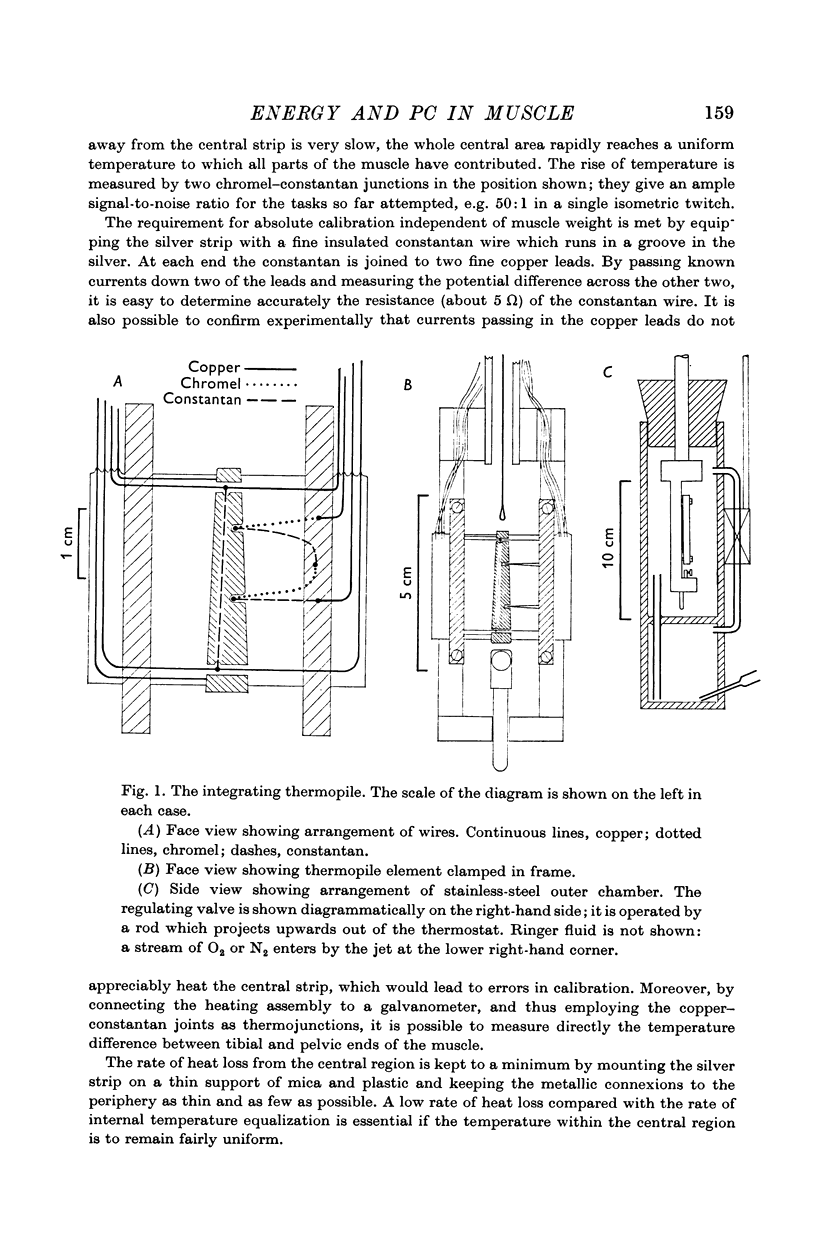
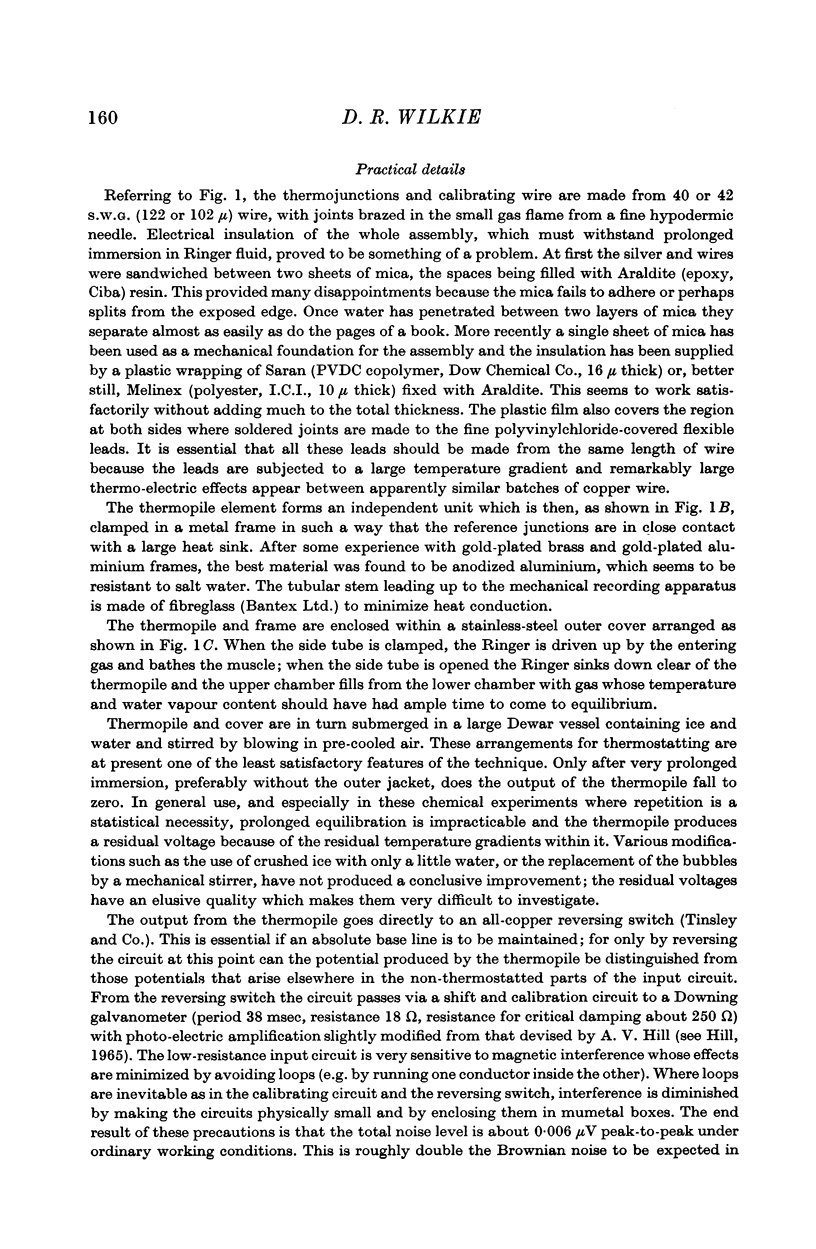
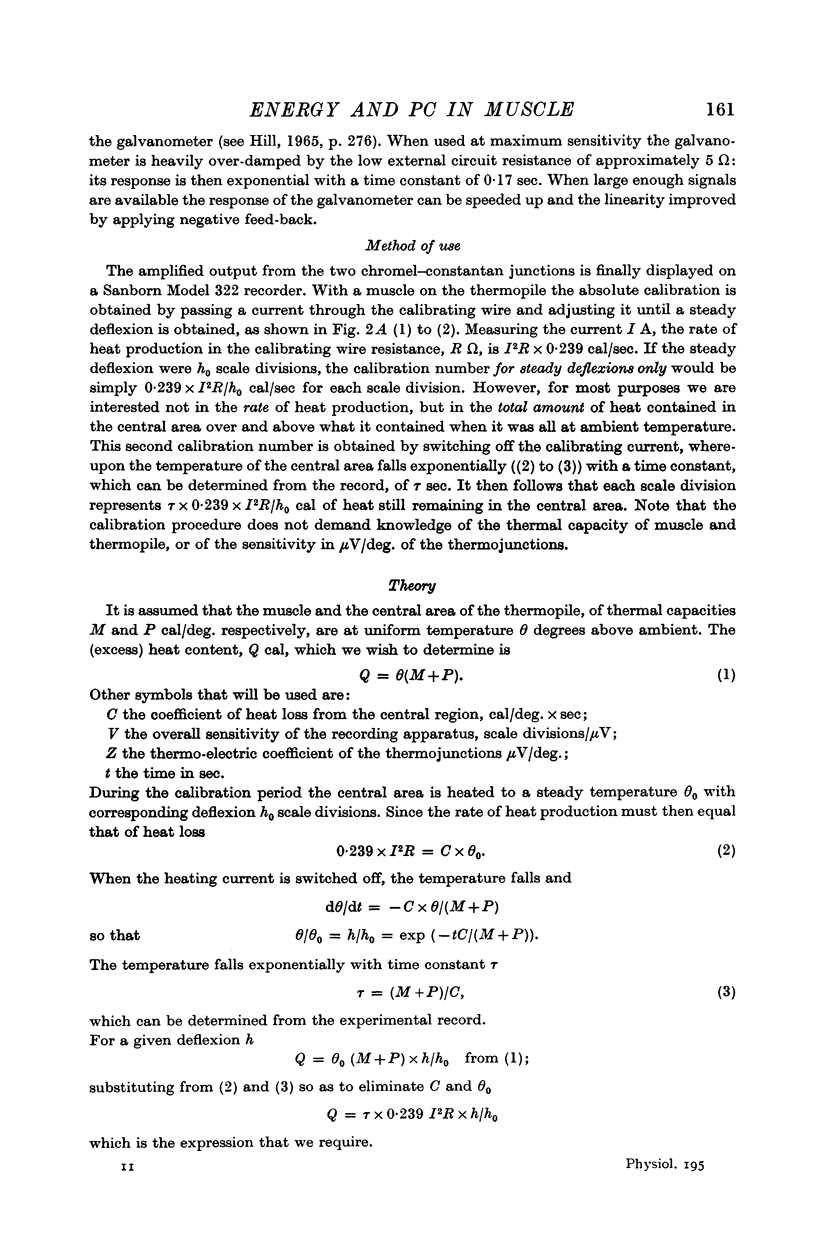
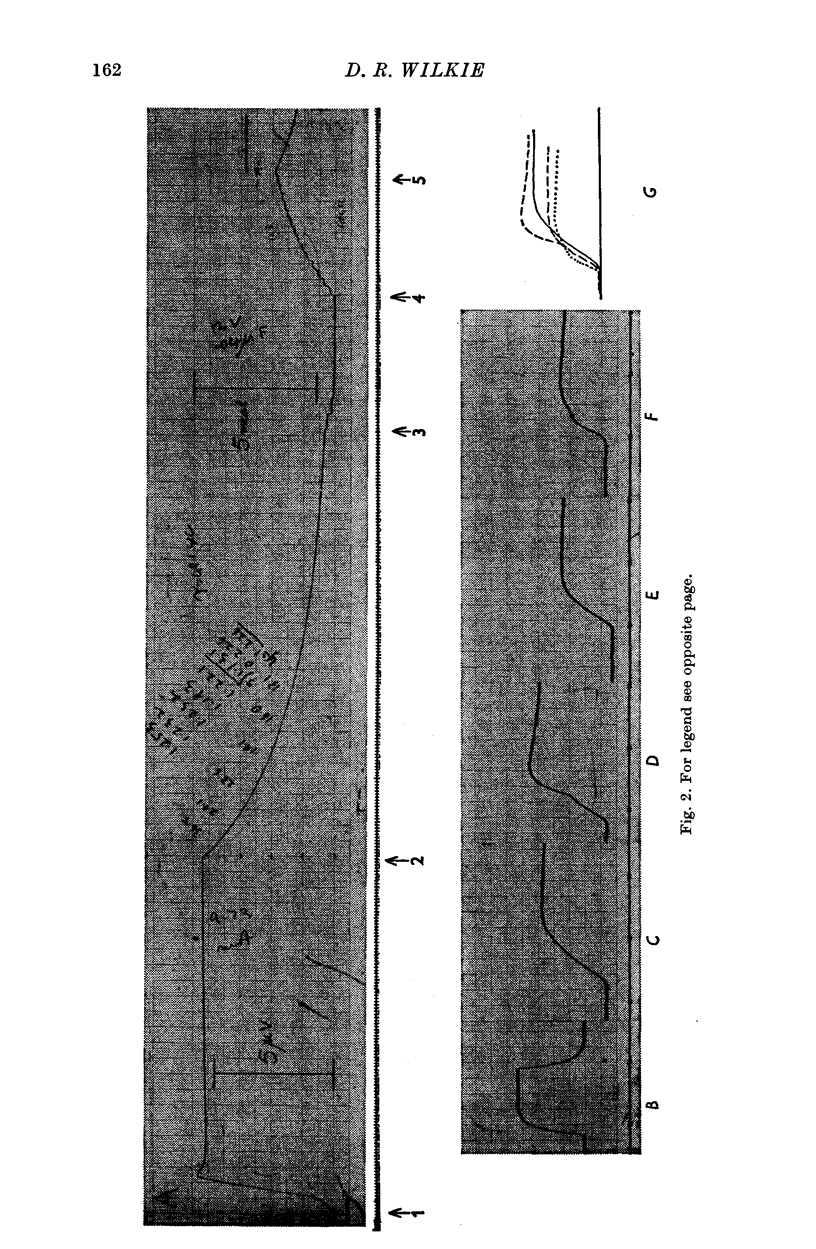
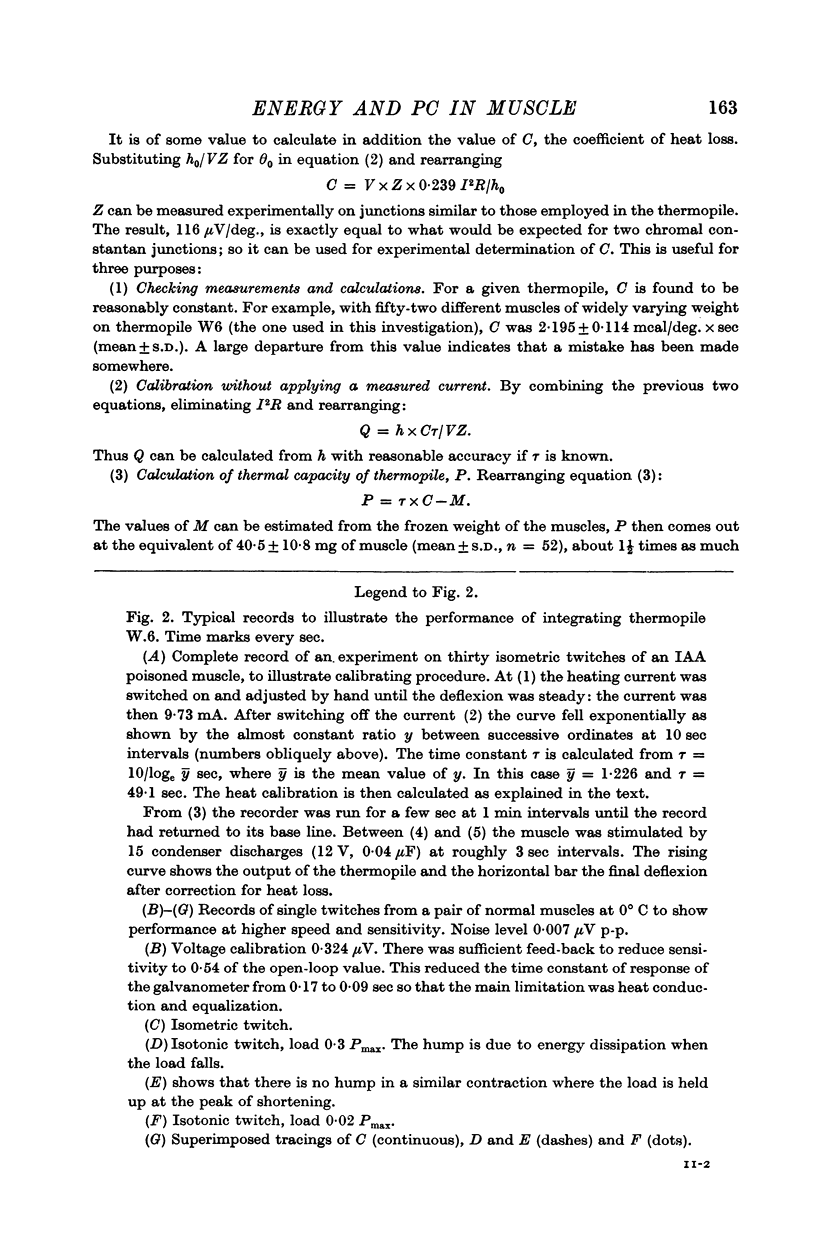
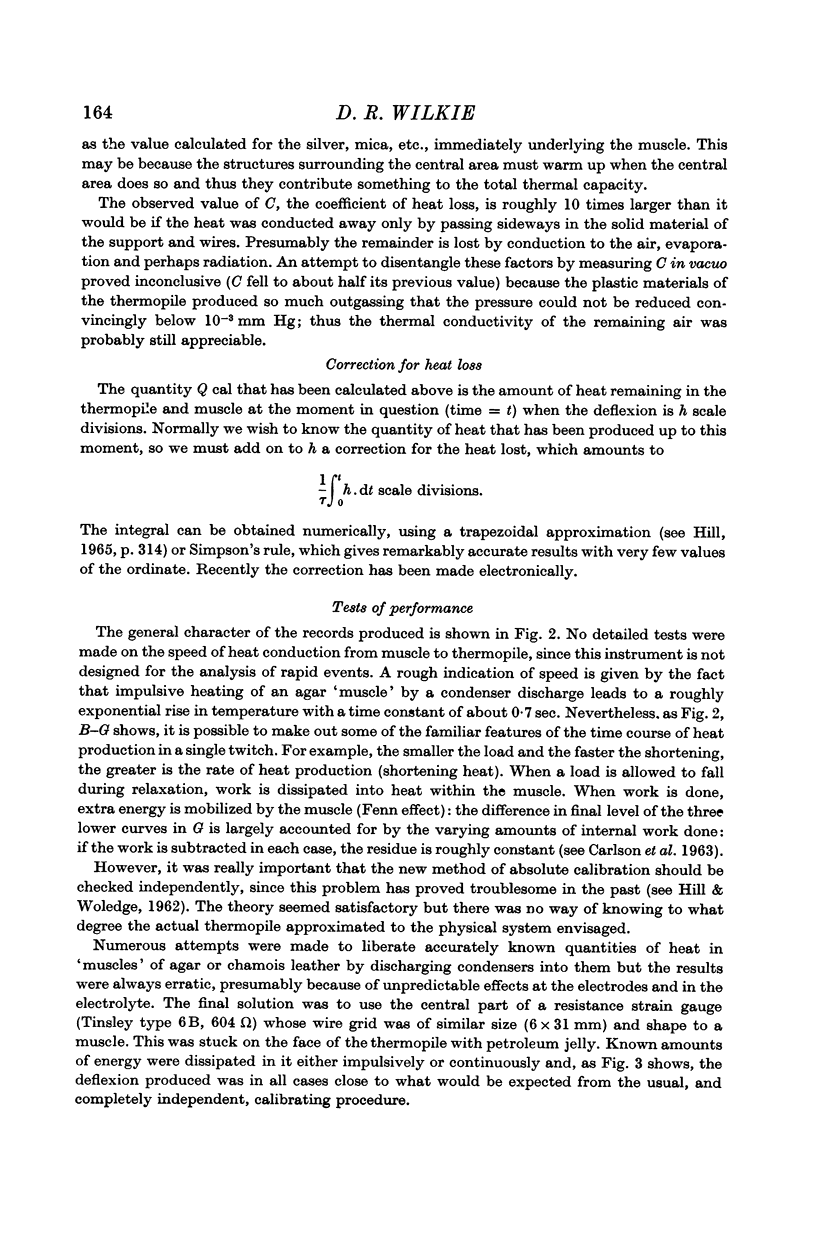
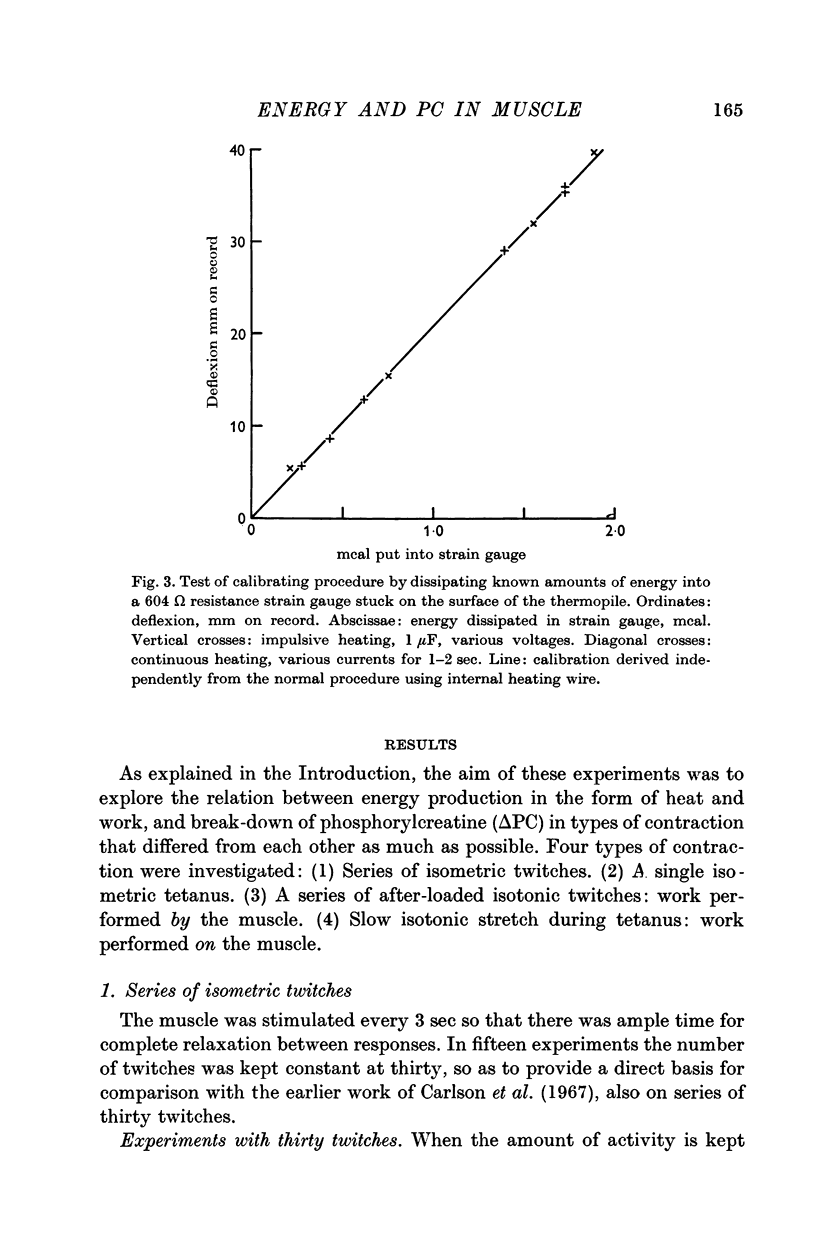
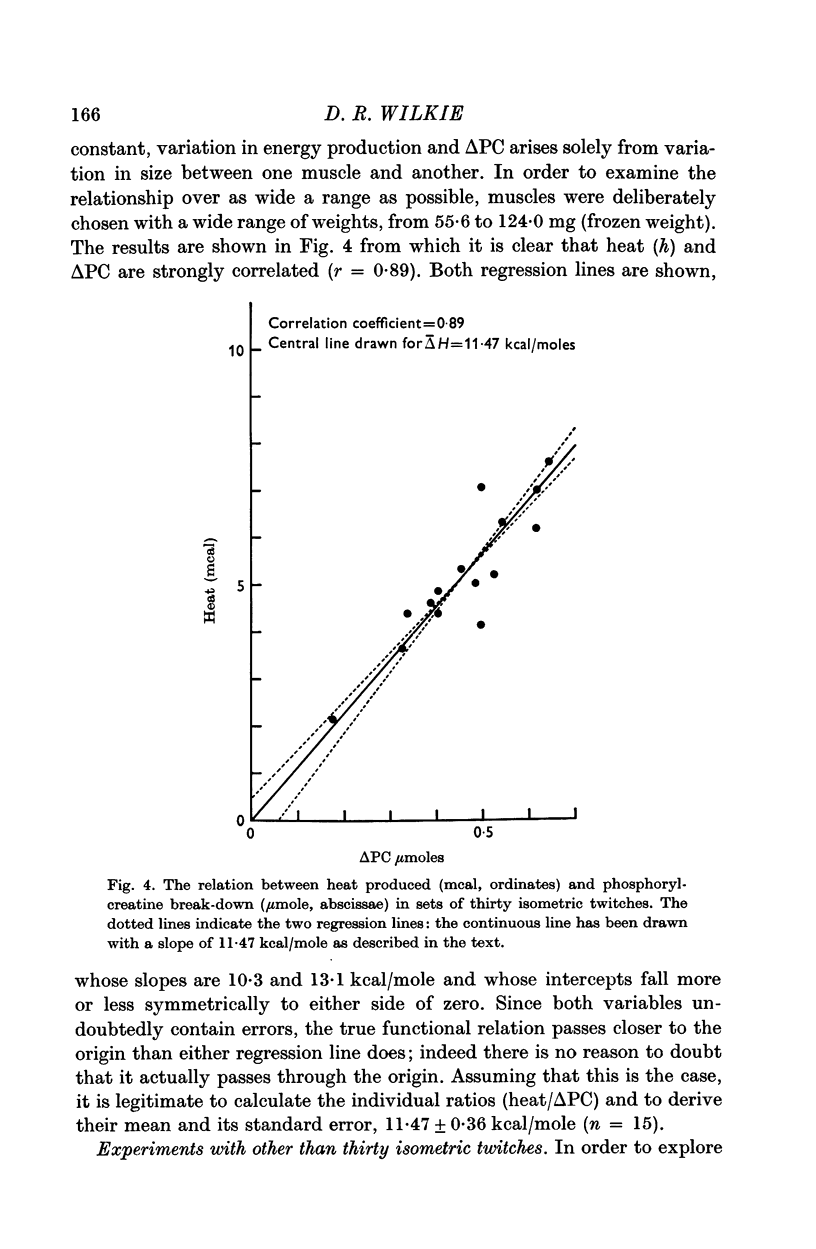
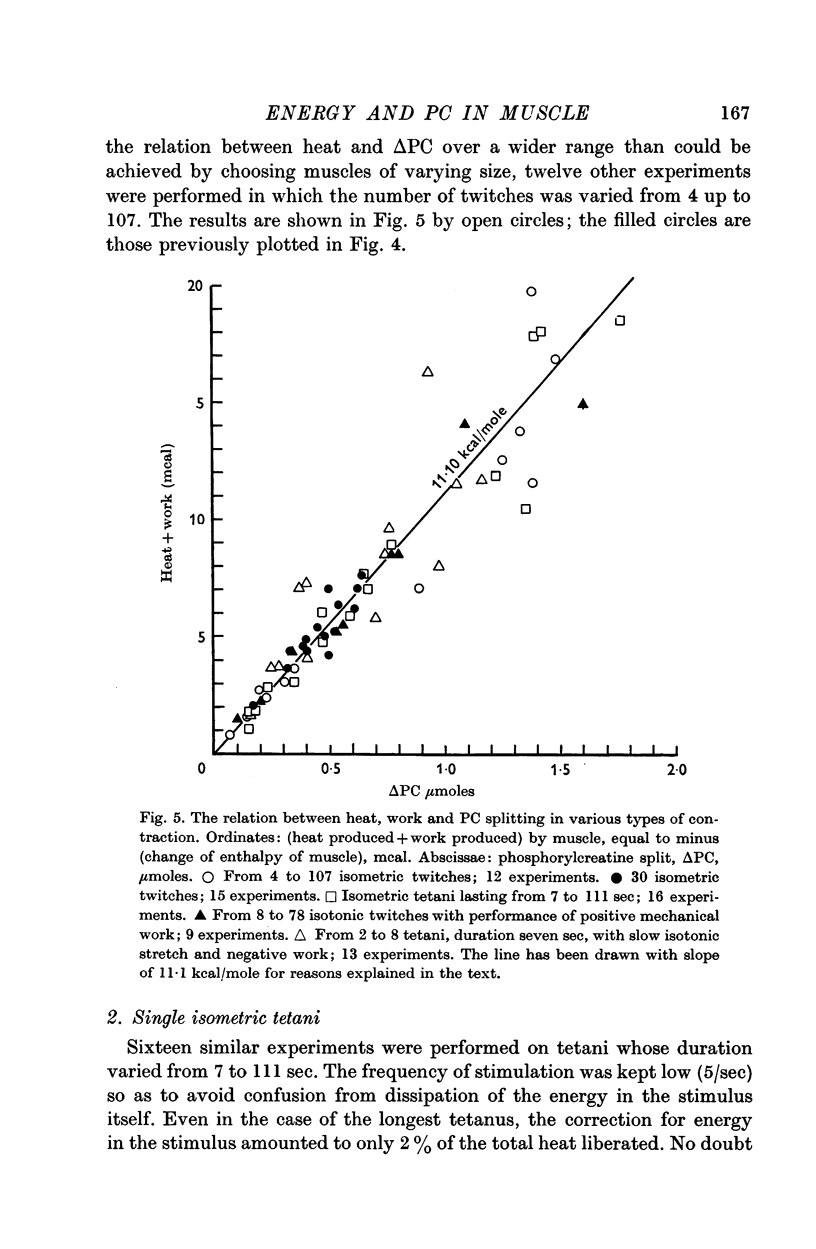
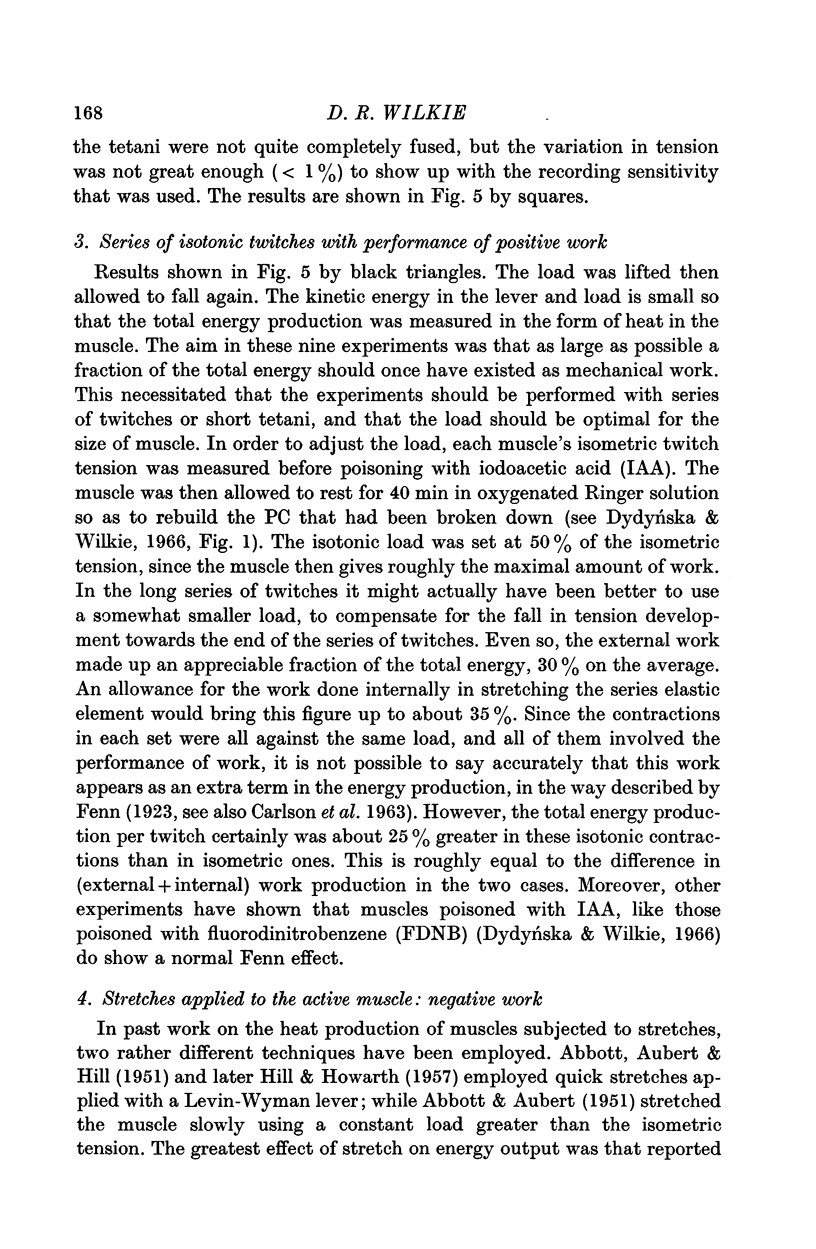
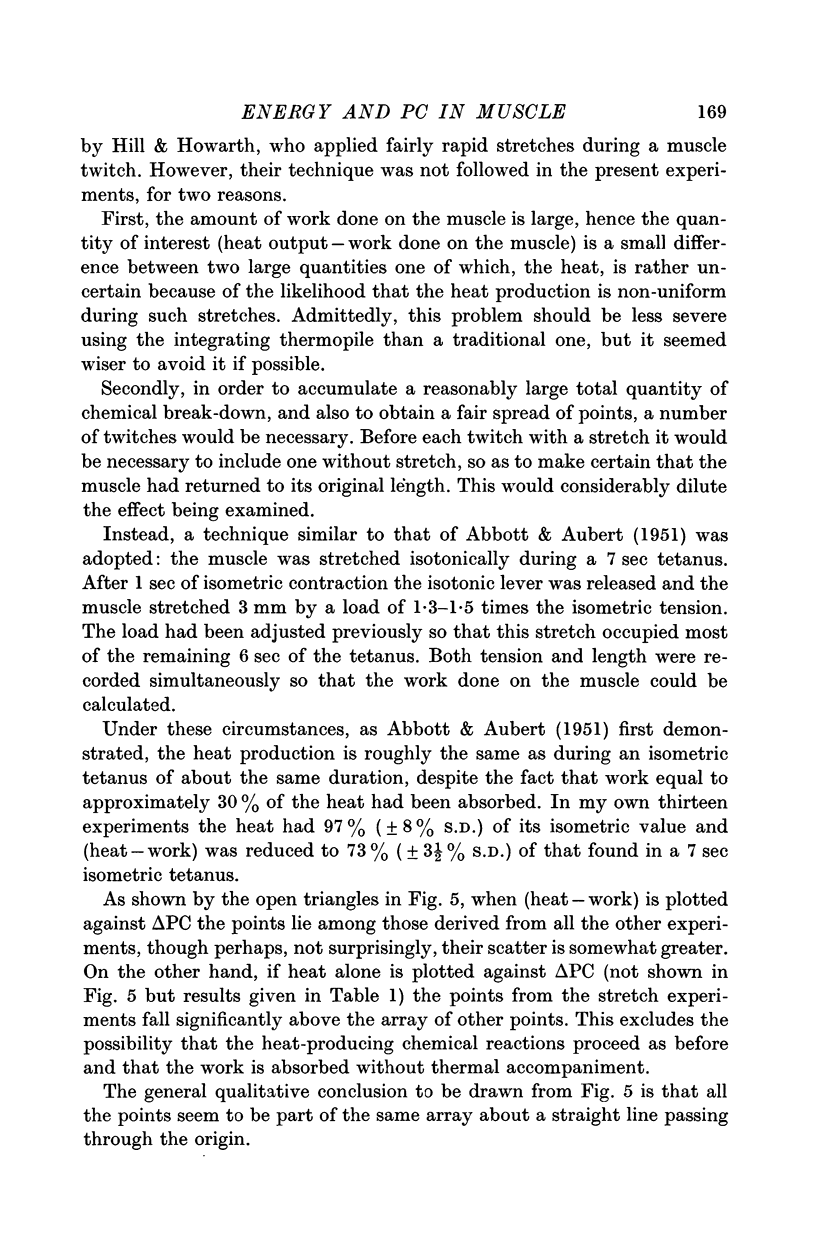
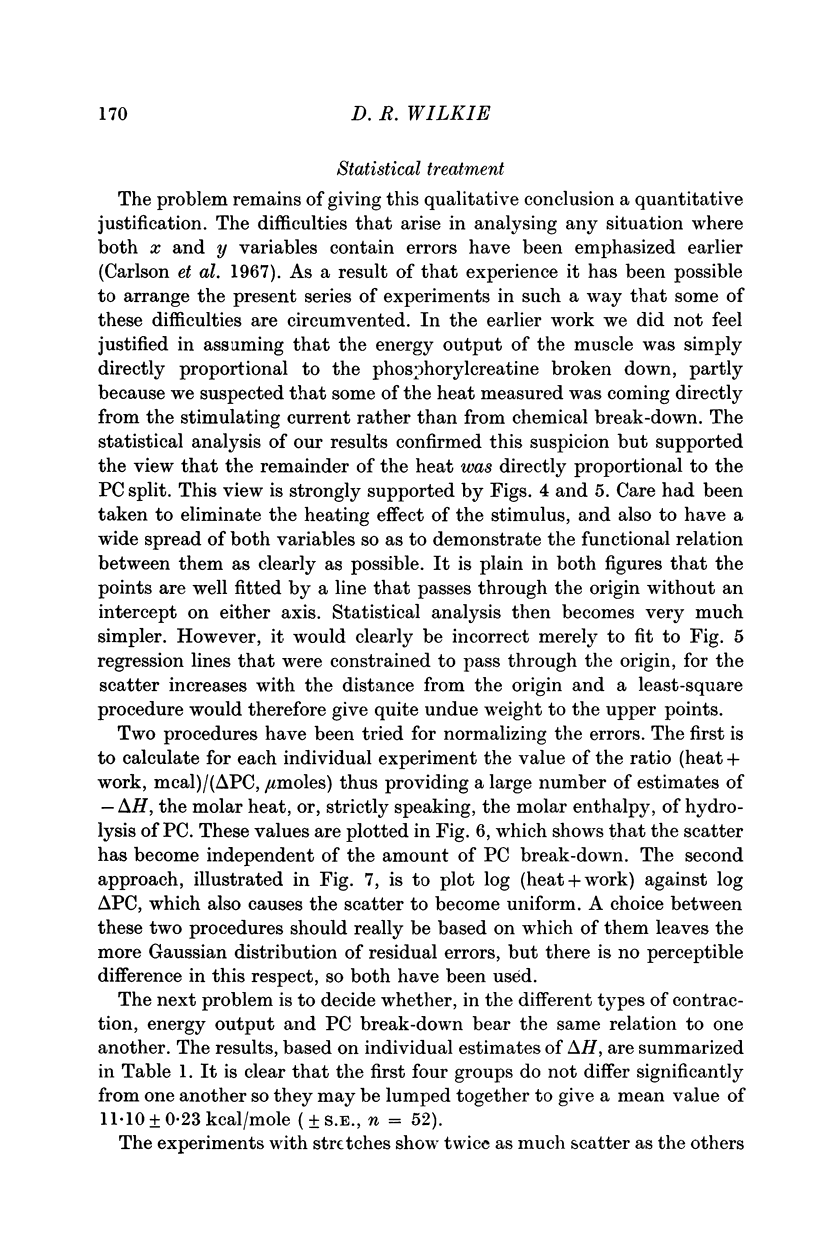
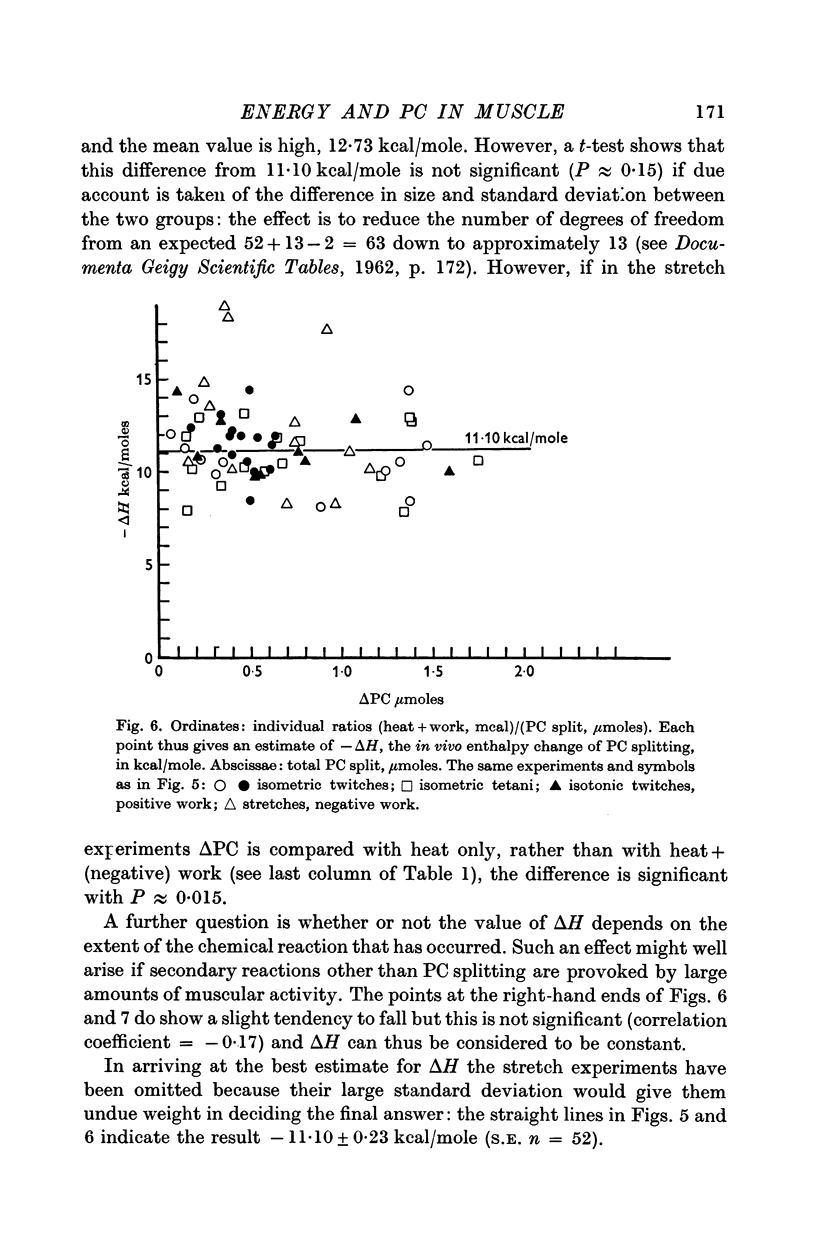
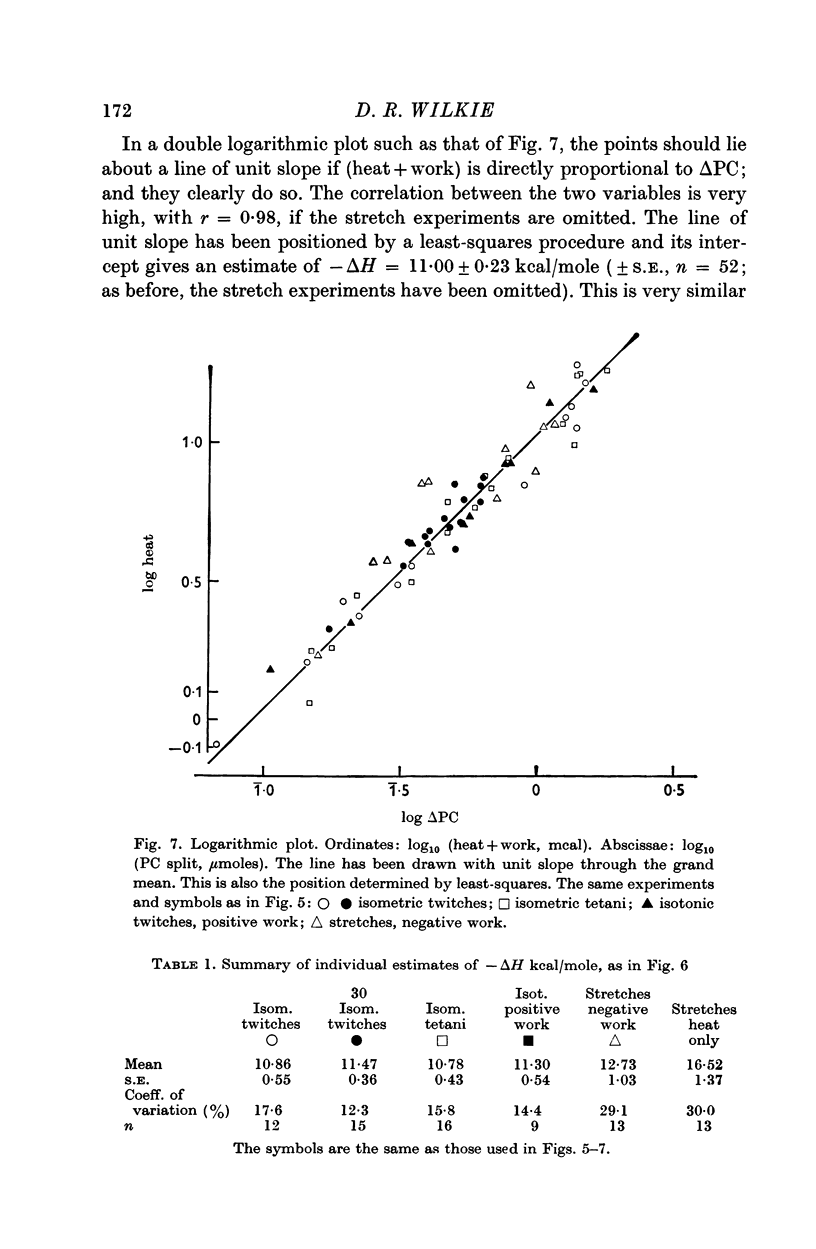
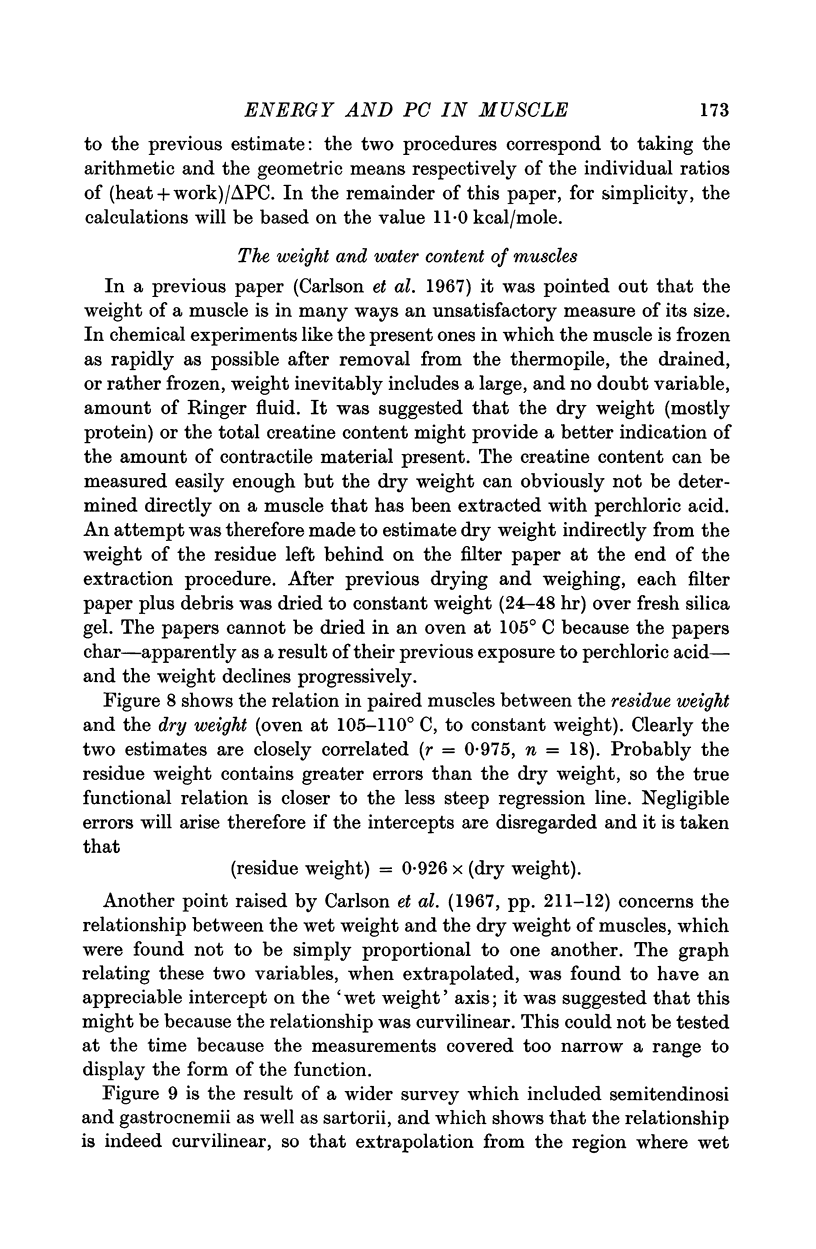
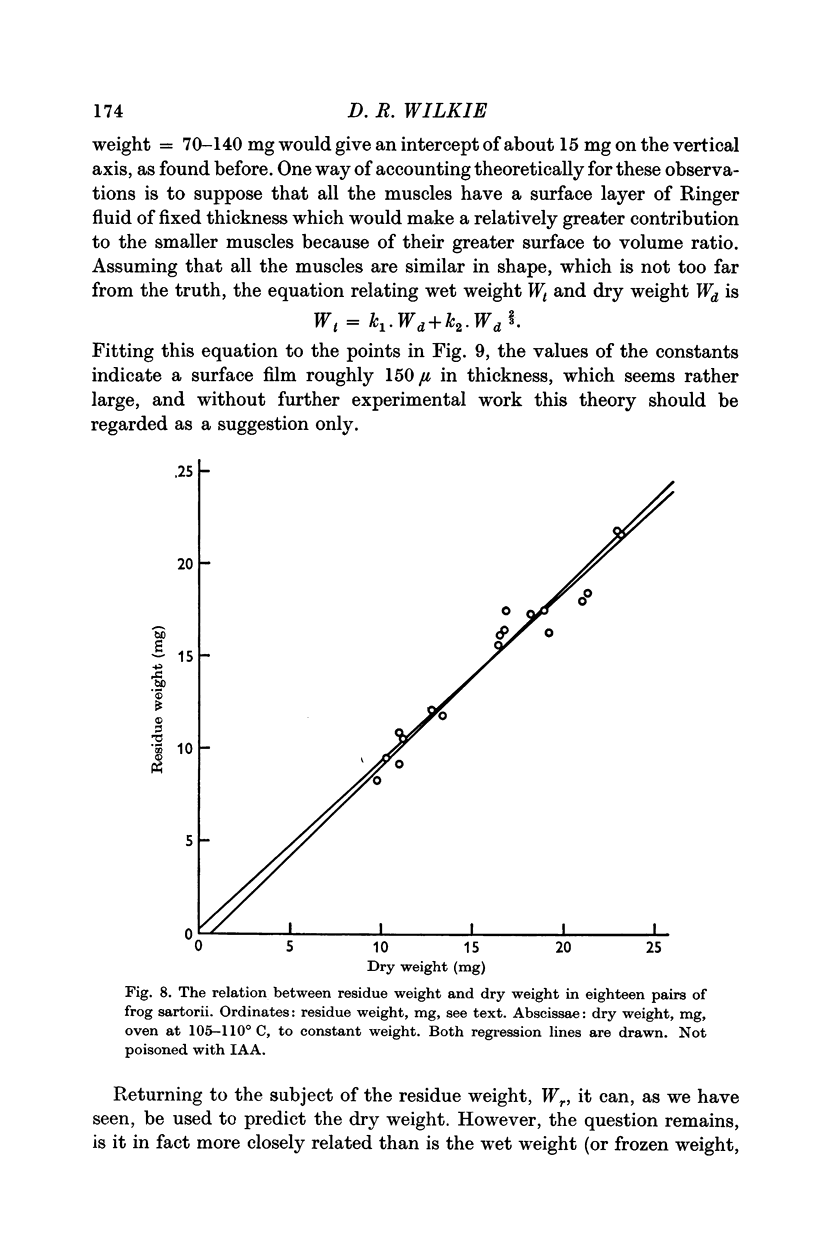
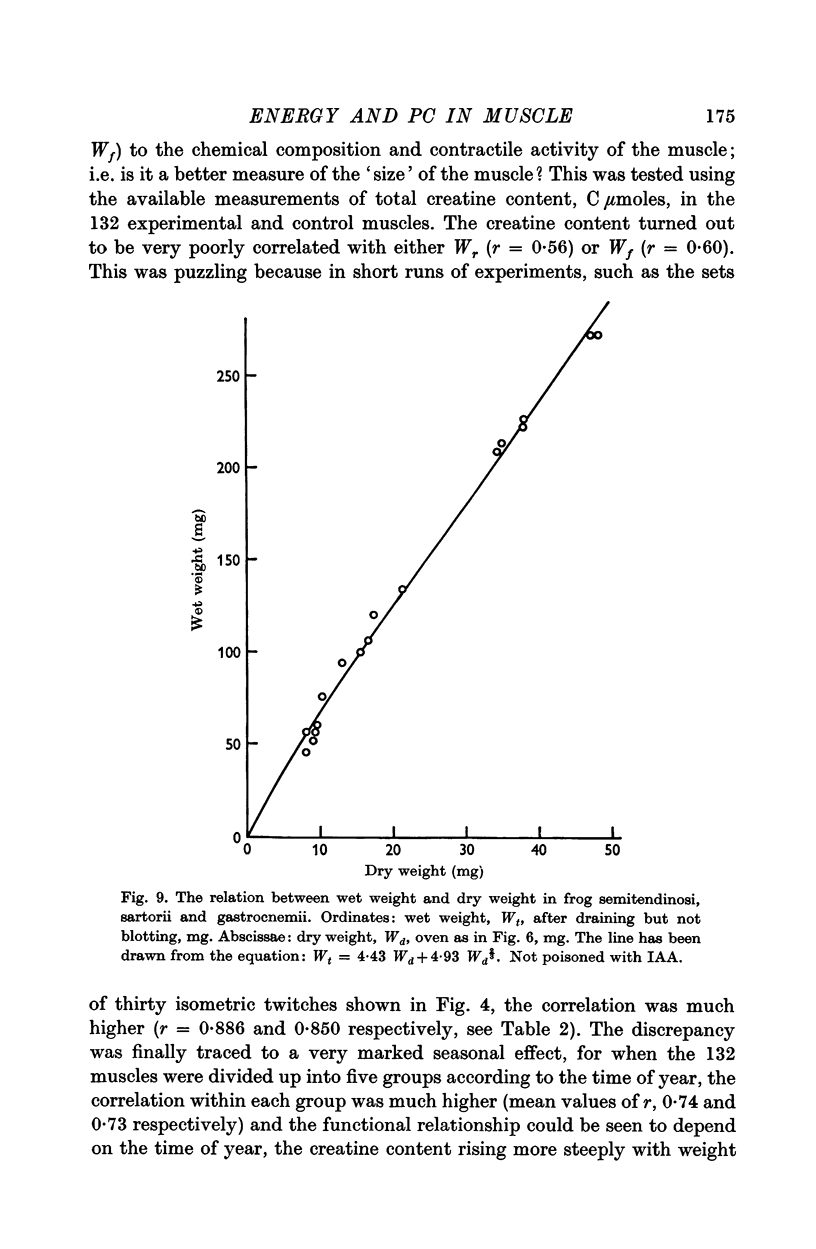
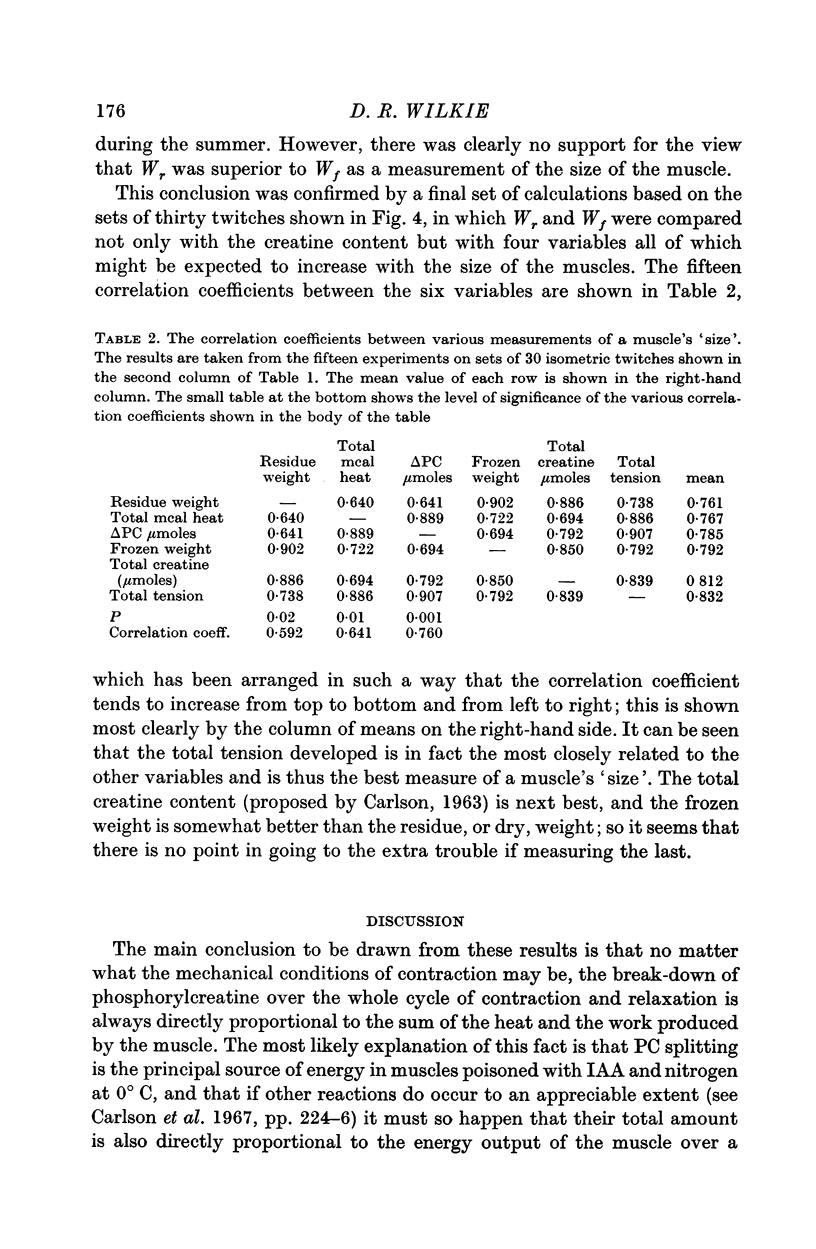
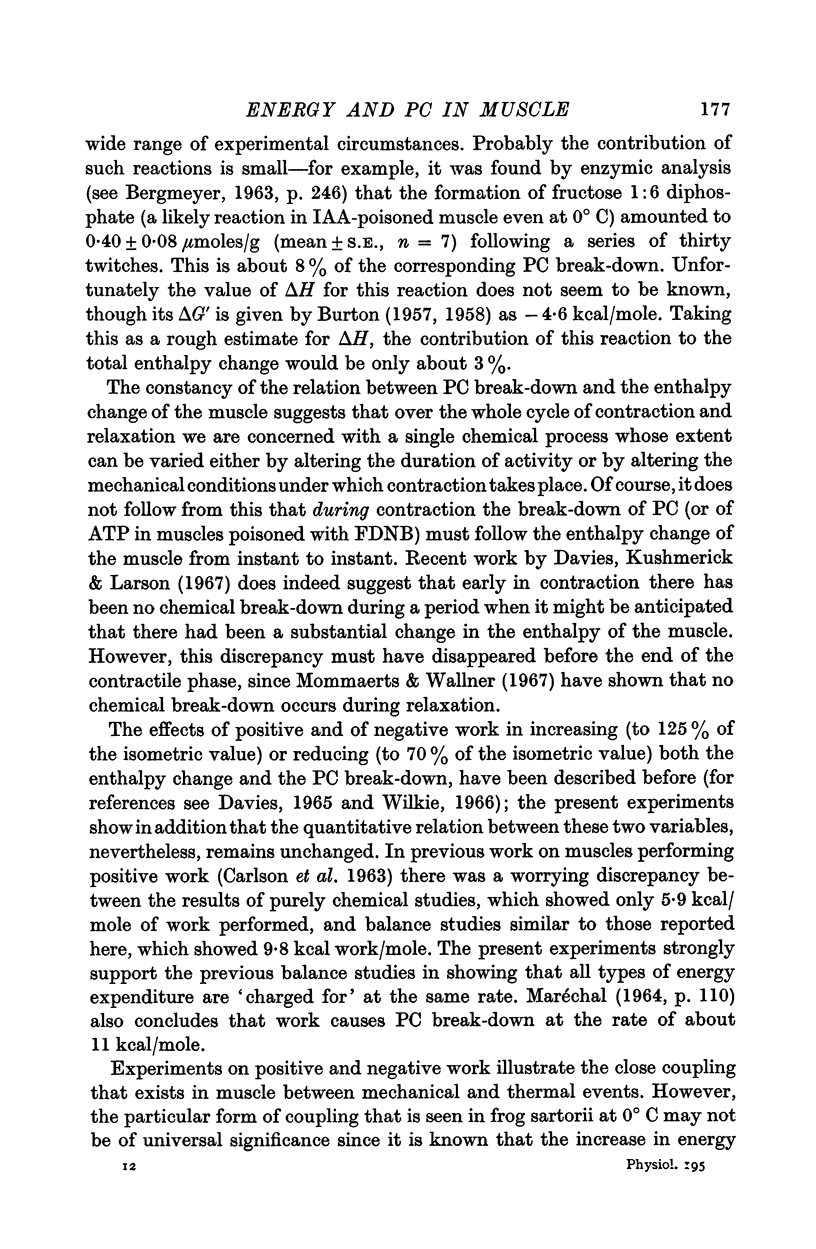
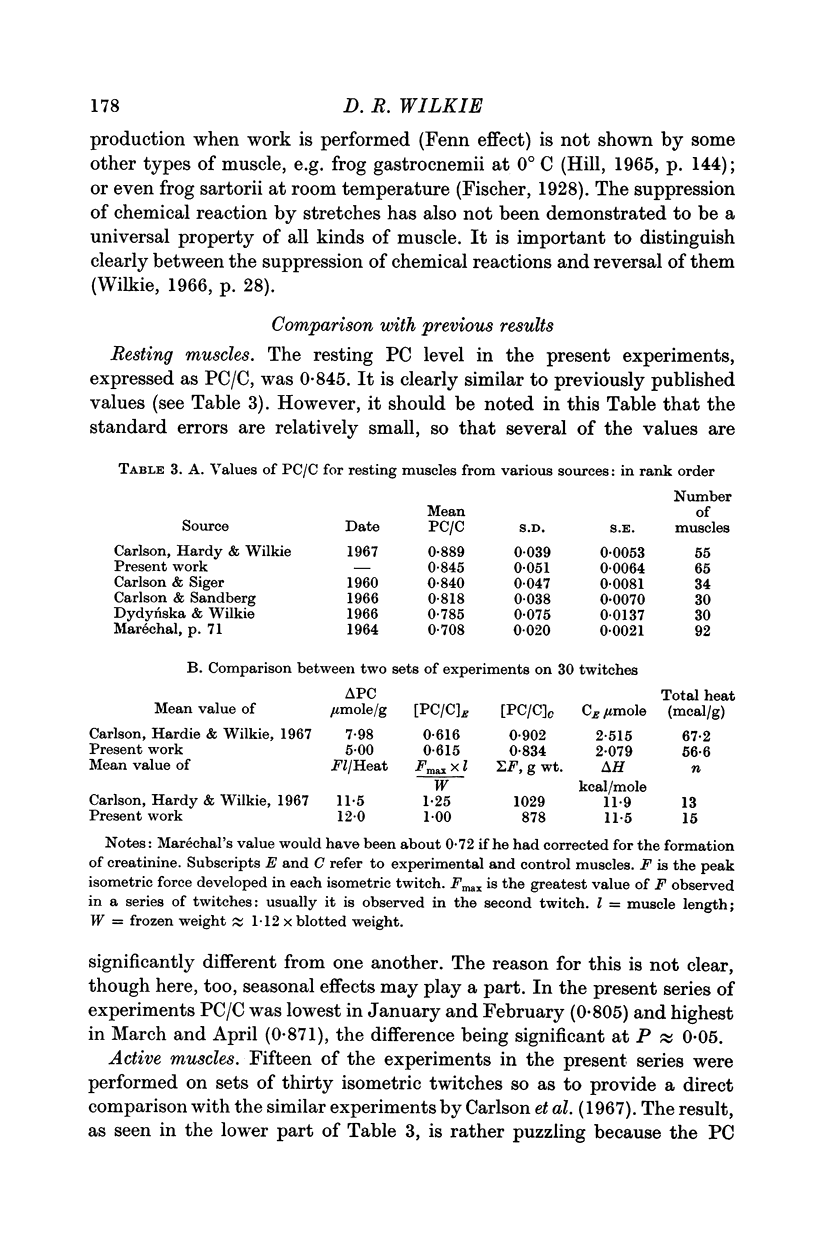
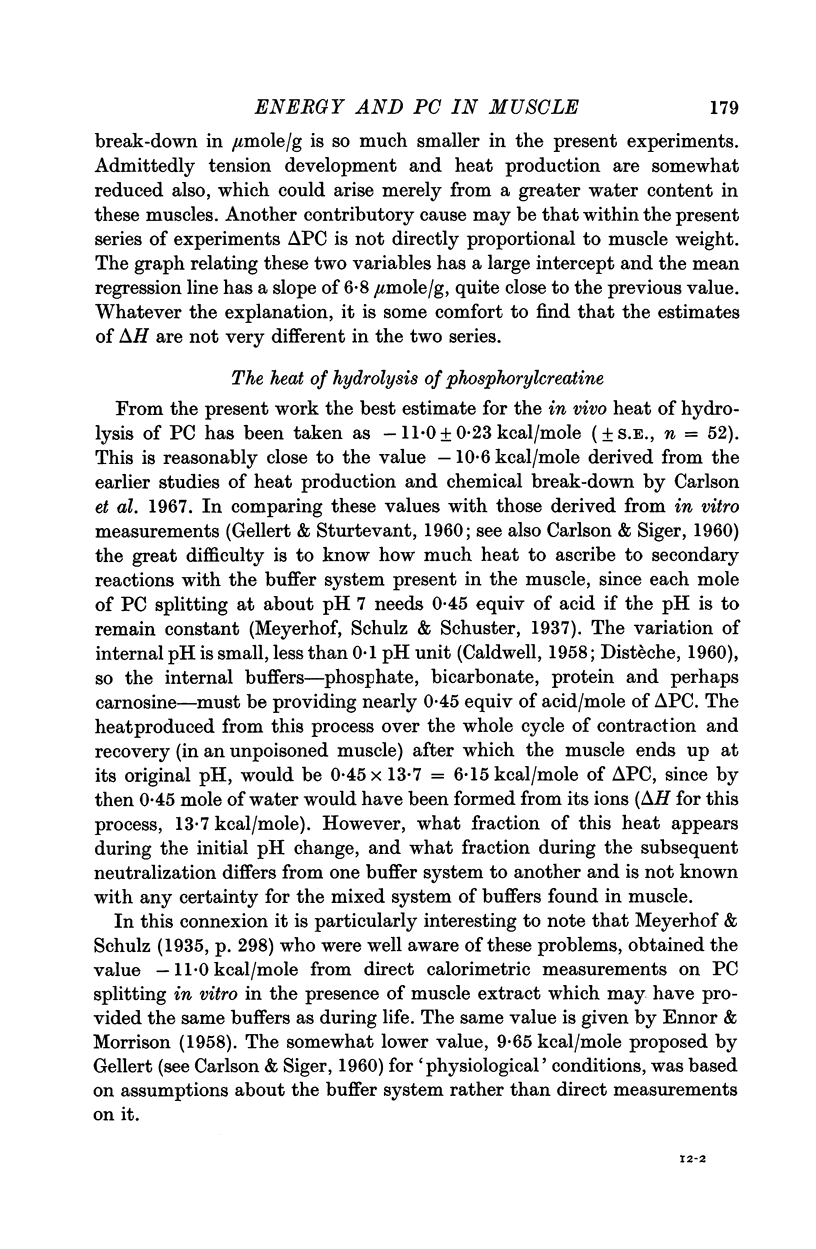
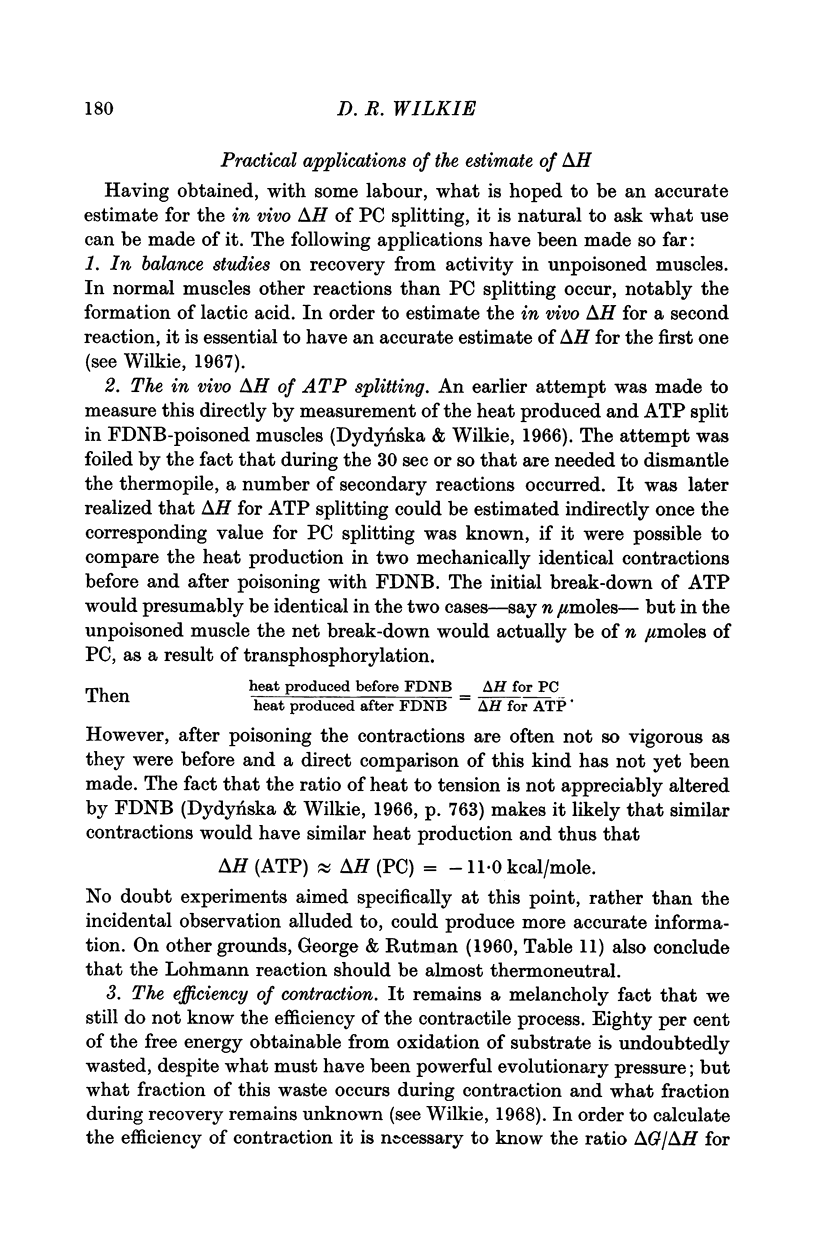
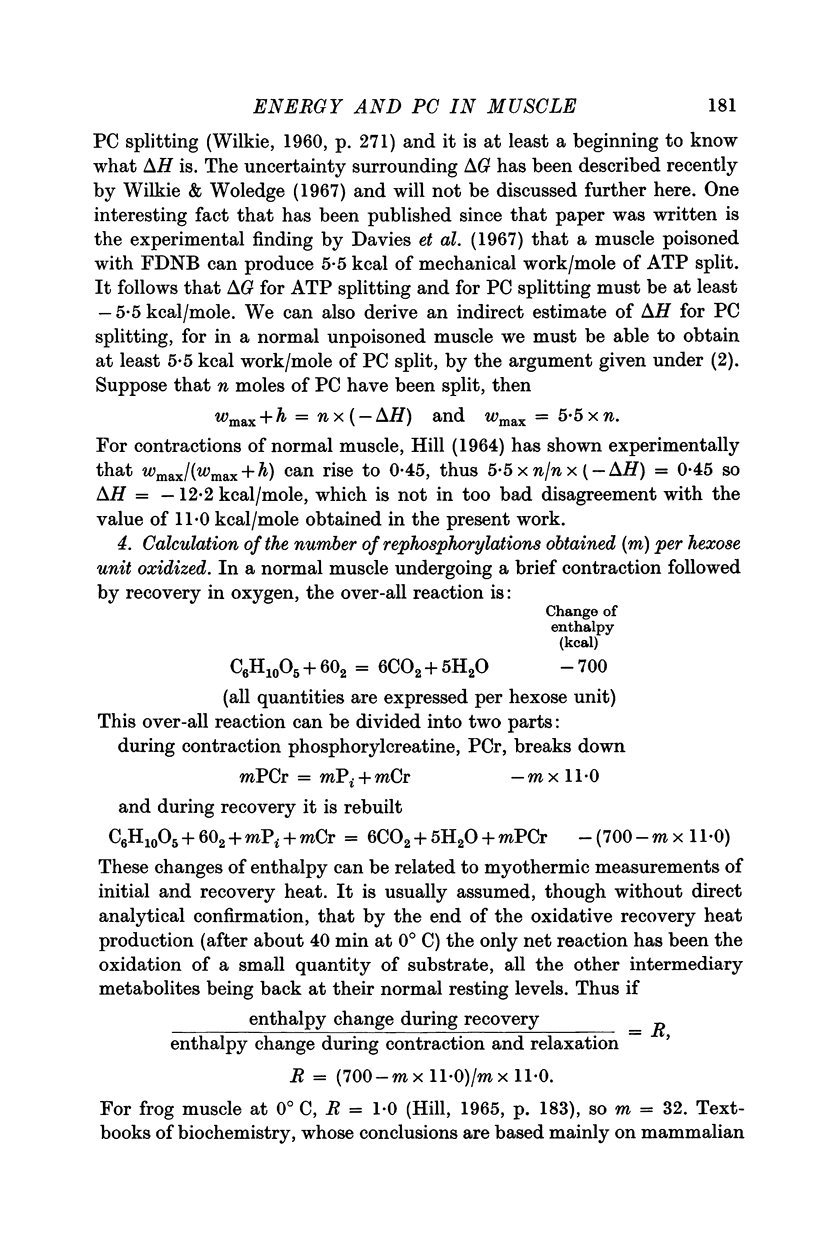
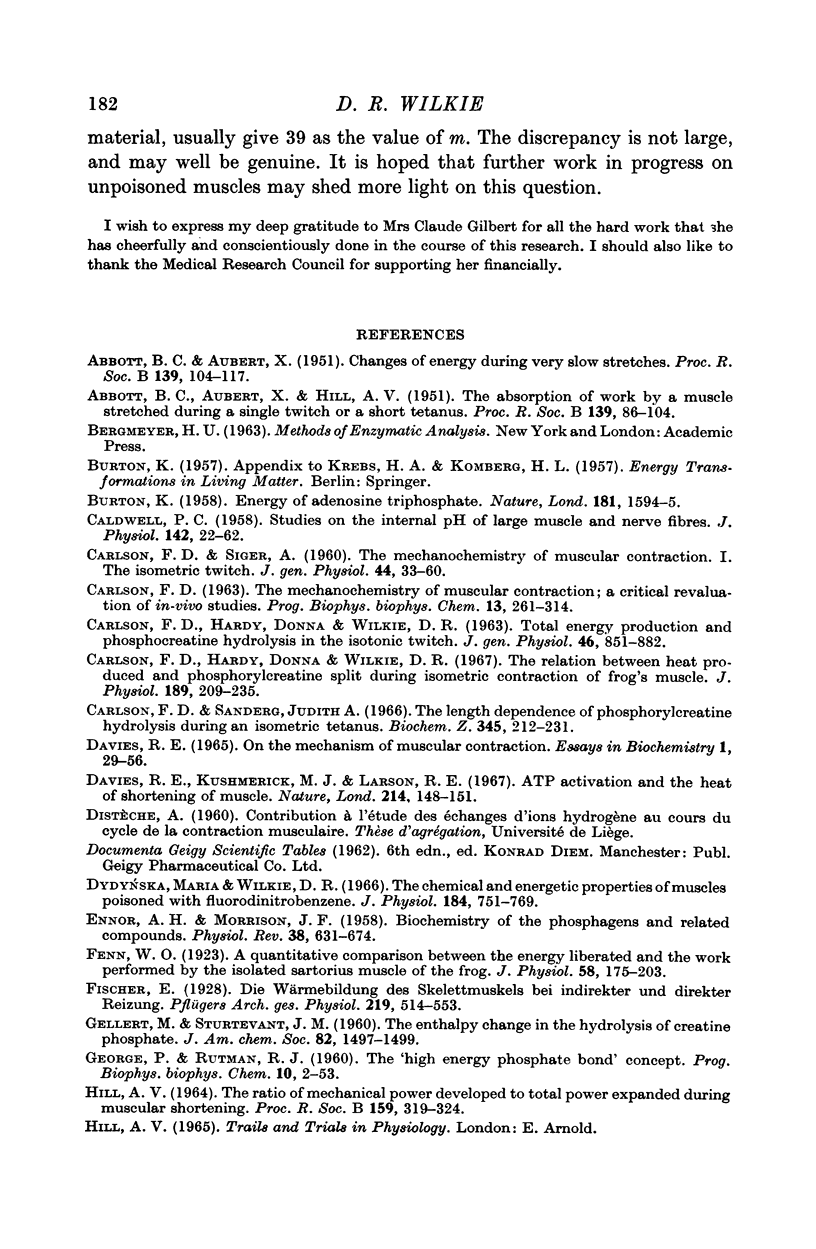
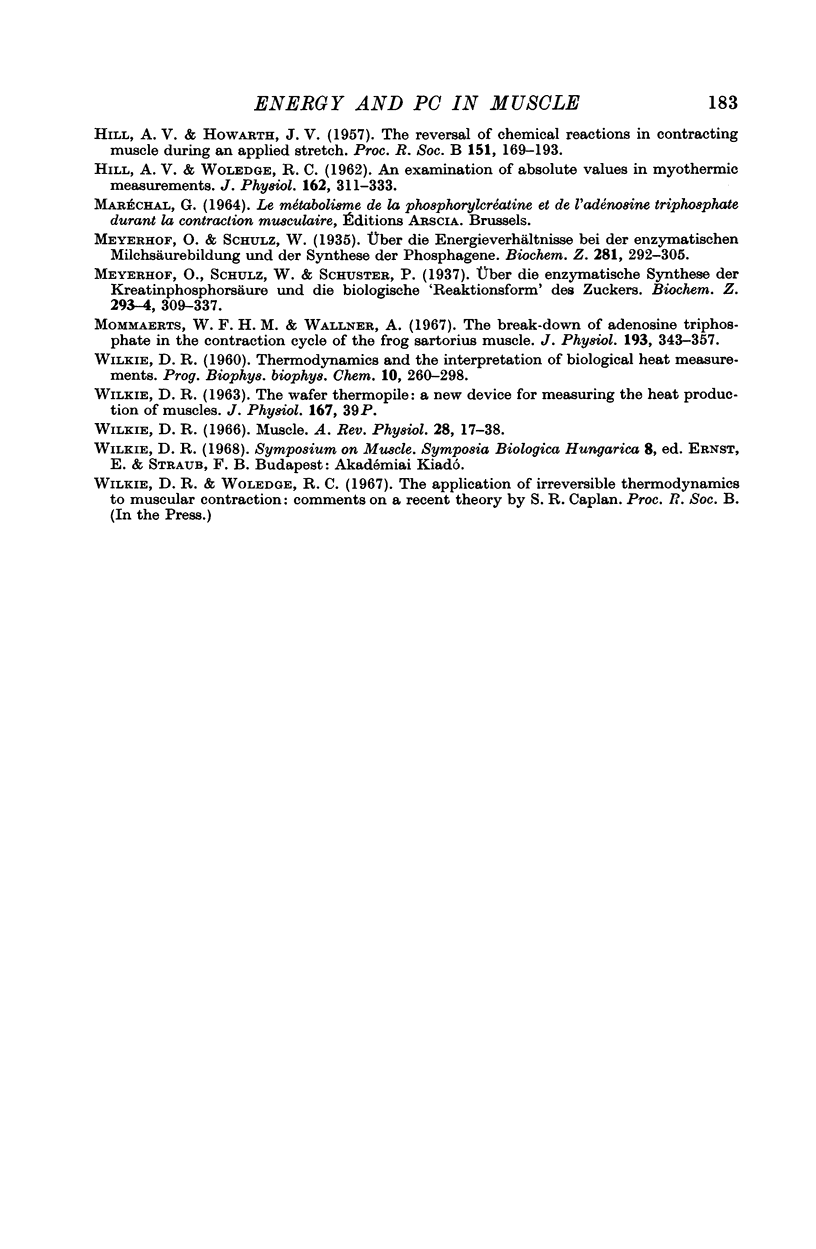
Images in this article
Selected References
These references are in PubMed. This may not be the complete list of references from this article.
- ABBOTT B. C., AUBERT X. M. Changes of energy in a muscle during very slow stretches. Proc R Soc Lond B Biol Sci. 1951 Dec 31;139(894):104–117. doi: 10.1098/rspb.1951.0049. [DOI] [PubMed] [Google Scholar]
- ABBOTT B. C., AUBERT X. M., HILL A. V. The absorption of work by a muscle stretched during a single twitch or a short tetanus. Proc R Soc Lond B Biol Sci. 1951 Dec 31;139(894):86–104. doi: 10.1098/rspb.1951.0048. [DOI] [PubMed] [Google Scholar]
- BURTON K. Energy of adenosine triphosphate. Nature. 1958 Jun 7;181(4623):1594–1595. doi: 10.1038/1811594a0. [DOI] [PubMed] [Google Scholar]
- CALDWELL P. C. Studies on the internal pH of large muscle and nerve fibres. J Physiol. 1958 Jun 18;142(1):22–62. doi: 10.1113/jphysiol.1958.sp005998. [DOI] [PMC free article] [PubMed] [Google Scholar]
- CARLSON F. D., HARDY D. J., WILKIE D. R. Total energy production and phosphocreatine hydrolysis in the isotonic twitch. J Gen Physiol. 1963 May;46:851–882. doi: 10.1085/jgp.46.5.851. [DOI] [PMC free article] [PubMed] [Google Scholar]
- CARLSON F. D., SIGER A. The mechanochemistry of muscular contraction. I. The isometric twitch. J Gen Physiol. 1960 Sep;44:33–60. doi: 10.1085/jgp.44.1.33. [DOI] [PMC free article] [PubMed] [Google Scholar]
- CARLSON F. D. THE MECHANOCHEMISTRY OF MUSCULAR CONTRACTION, A CRITICAL REVALUATION OF IN VIVO STUDIES. Prog Biophys Mol Biol. 1963;13:261–314. doi: 10.1016/s0079-6107(63)80018-8. [DOI] [PubMed] [Google Scholar]
- Carlson F. D., Hardy D., Wilkie D. R. The relation between heat produced and phosphorylcreatine split during isometric contraction of frog's muscle. J Physiol. 1967 Apr;189(2):209–235. doi: 10.1113/jphysiol.1967.sp008164. [DOI] [PMC free article] [PubMed] [Google Scholar]
- Davies R. E., Kushmerick M. J., Larson R. E. ATP, activation, and the heat of shortening of muscle. Nature. 1967 Apr 8;214(5084):148–151. doi: 10.1038/214148a0. [DOI] [PubMed] [Google Scholar]
- Davies R. E. On the mechanism of muscular contraction. Essays Biochem. 1965;1:29–55. [PubMed] [Google Scholar]
- ENNOR A. H., MORRISON J. F. Biochemistry of the phosphagens and related guanidines. Physiol Rev. 1958 Oct;38(4):631–674. doi: 10.1152/physrev.1958.38.4.631. [DOI] [PubMed] [Google Scholar]
- Fenn W. O. A quantitative comparison between the energy liberated and the work performed by the isolated sartorius muscle of the frog. J Physiol. 1923 Dec 28;58(2-3):175–203. doi: 10.1113/jphysiol.1923.sp002115. [DOI] [PMC free article] [PubMed] [Google Scholar]
- GEORGE P., RUTMAN R. J. The "high energy phosphate bond" concept. Prog Biophys Mol Biol. 1960;10:1–53. [PubMed] [Google Scholar]
- HILL A. V. THE EFFICIENCY OF MECHANICAL POWER DEVELOPMENT DURING MUSCULAR SHORTENING AND ITS RELATION TO LOAD. Proc R Soc Lond B Biol Sci. 1964 Jan 14;159:319–324. doi: 10.1098/rspb.1964.0005. [DOI] [PubMed] [Google Scholar]
- HILL A. V., WOLEDGE R. C. An examination of absolute values in myothermic measurements. J Physiol. 1962 Jul;162:311–333. doi: 10.1113/jphysiol.1962.sp006935. [DOI] [PMC free article] [PubMed] [Google Scholar]
- Mommaerts W. F., Wallner A. The break-down of adenosine triphosphate in the contraction cycle of the frog sartorius muscle. J Physiol. 1967 Nov;193(2):343–357. doi: 10.1113/jphysiol.1967.sp008361. [DOI] [PMC free article] [PubMed] [Google Scholar]
- WILKIE D. R. Thermodynamics and the interpretation of biological heat measurements. Prog Biophys Mol Biol. 1960;10:259–298. [PubMed] [Google Scholar]
- Wilkie D. R. Muscle. Annu Rev Physiol. 1966;28:17–38. doi: 10.1146/annurev.ph.28.030166.000313. [DOI] [PubMed] [Google Scholar]



